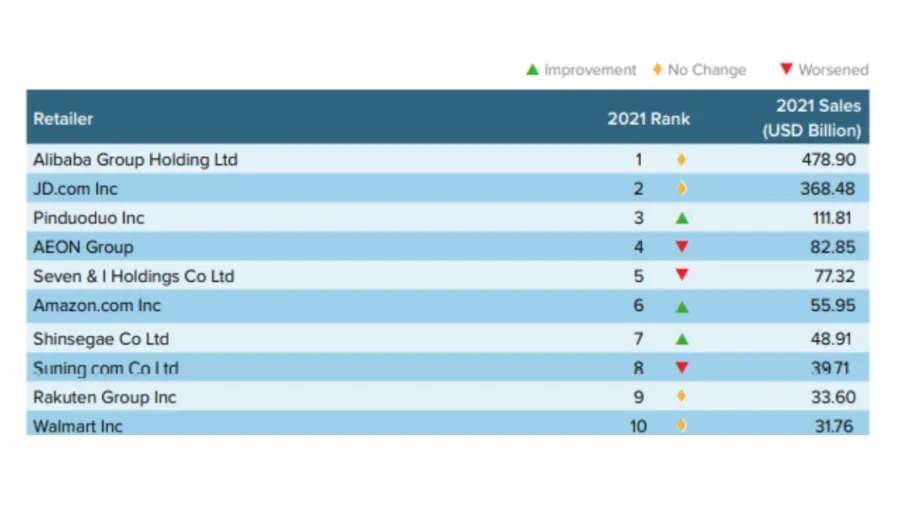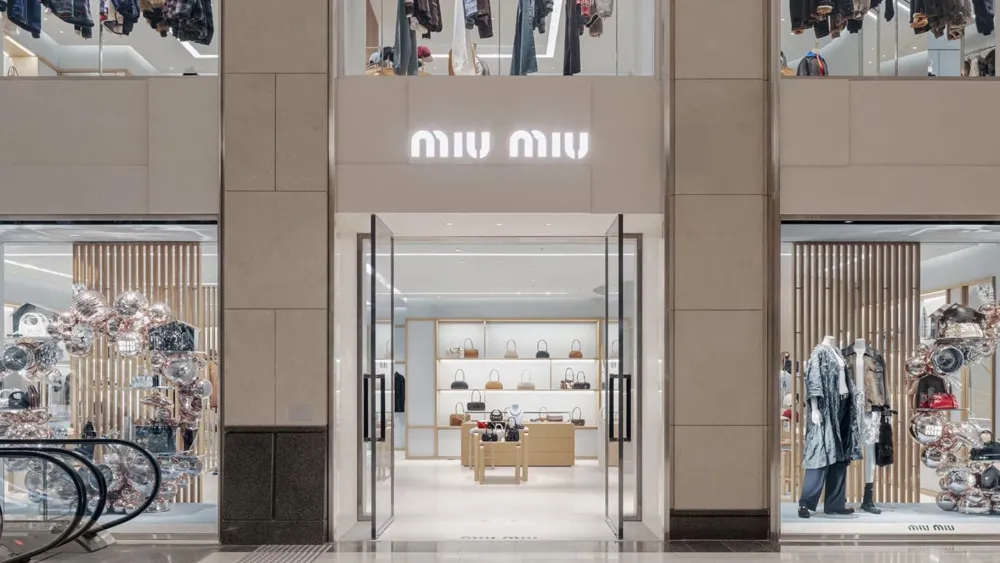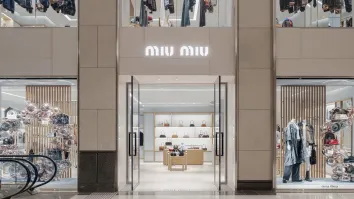
Alibaba Group retains post as Asia’s top retailer in 2021
Its sales last year reached $478.9b.
Alibaba Group Holding Ltd. remained the top retailer in Asia for 2021 after garnering sales worth $478.9b, according to Euromonitor International’s Top 100 Retailer in Asia report.
JD.com Inc. also maintained its spot and came in second with sales of $368.48b, whilst Pinduoduo Inc. rose to the third spot from fifth last year with $111.81b sales. AEON Group slipped one place and ranked fourth with $82.85b, whilst Seven $ I Holdings Co. Ltd. fell to fifth place from fourth in 2021 with $77.32b sales.
Completing the Top 10 were Amazon.com Inc. ($55.95b), Shinsegae Co. Ltd. ($48.91b), Suning.com Co. Ltd. ($39.71b), Rakuten Group Inc. ($33.6b), and Walmart Inc. ($31.76b).
Asia dominates global retail space
“Innovation tends to originate here. And this region pioneers digital developments that retailers adopt and emulate around the world. Plus, the geographic landscape, combining some of the most developed and fastest-emerging markets, makes this region a unique retail powerhouse,” the report read.
In 2021, digital drove sales and competition, with e-commerce continuing to be the “standout performer,” as online sales rose over 24% in 2021, adding $290b to the region’s retail market.
As Asian consumers are avid tech users as seen in the rise of social commerce, live streaming, hyperlocal delivery, and direct-to-consumer models, new competitors have emerged that threatened the “long-standing pre-dominance of store-based retailers.”
With this, Euromonitor said store-based retailers had to make a choice. They either “embrace and use retail tech or ignore digital and risk business decline.”
“In Asia’s culturally nuanced and economically diverse region, you need to build partnerships with digital commerce platforms and rethink long-term strategies. The first wave of disruption was about how brick-and-mortar retailers could compete with e-commerce. This next wave will be about integrating and uncovering synergies,” the report read.
“The competition is fierce. Players are fighting to stay relevant. Tailoring the shopping journey to local markets and personalising the customer experience will be crucial to thrive in Asia,” it added



















 Advertise
Advertise







